
Publisher:
Bonnie King
CONTACT:
Newsroom@Salem-news.com
Advertising:
Adsales@Salem-news.com

~Truth~
~Justice~
~Peace~
TJP
Aug-29-2012 16:12

 TweetFollow @OregonNews
TweetFollow @OregonNews
The South African Movement of Yesterday is the Congo Movement of Today
Jennifer Fierberg, MSW Salem-News.comJennifer Fierberg interviews Kambale Musavuli
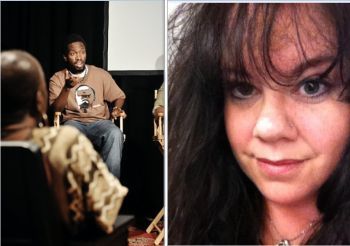 Kabale Musavuli and Jennifer Fierberg |
(WASHINGTON DC) - The war in the D.R. Congo is not improving and is actually getting worse by the day. The M23 rebel group backed by the Rwandan Military has been terrorizing the Eastern Region of the Congo for many months. Hundreds of thousands of people have been displaced, raped or killed. The International Community has begun to sanction the Government of Rwanda in the form of withdrawing or freezing foreign aid payments due to the UN Group of Experts Report which provides substantial and credible evidence that Rwanda is arming and financially backing this rebel group. The Government of Rwanda denies these allegations.
In an interview with Kambale Musavuli I sat down with him (via Skype) to get to the bottom of these issues and to gain his perspective on the situation. Mr. Musavuli is the Student Coordinator and National Spokesperson for Friends of the Congo. This organization describes themselves as “Raising consciousness about the challenge of the Congo and supporting Congolese institutions as they strive to bring about peaceful and lasting change.” He has appeared on numerous news outlets being interviewed about the issues facing the Congo today and is an advocate to educate the public on the ongoing crisis that the Congo is facing. It was a very enlightening interview and one where, as an interviewer, I learned very much from this exchange. This is an interview I will not soon forget.
The full transcript of the interview is below:
JF: What are your thoughts on the International Aid cuts to Rwanda and how they are affecting the region? What do you think of President Kagame’s response so far to this situation?
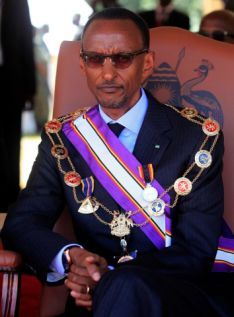 Rwanda's Paul Kagame |
KM: The response will be a speculation. Cutting aid to Rwanda is a diplomatic tool to reign in Paul Kagame. Because of that Rwanda may respond in a way that could escalate violence. Before the aid cuts, hundreds of thousands of people had been displaced and killed. Waiting until the last minute to take action has given Kagame Carte blanche to create conflict and chaos in Congo. The International community should have acted sooner with aggressive diplomacy such as the cutting of aid, engaging the players in the region and calling on SADC countries to not support Rwanda’s appointment to the UN Security Council. All forms of aggressive diplomacy need to be used in order to bring peace to the region.
JF: Was the UN Group of Experts Report on Rwanda’s involvement in the Congo the reason for the millions of aid cut from Rwanda or were there other factors?
KM: The UN report, given American politics right now being an election year and both leading candidates are talking about the Congo. Obama’s failure to enforce his Obama Law, Public Law 109-456, is an issue and the Congo is still a point of discussion. Relations in central Africa are a major issue with the US Government. Joseph Kony, the Ugandan rebel leader believed to be in the Congo and Central African Republic, has been an issue for the US but there is also another major warlord in the Congo, Bosco Ntaganda, wanted by the International Criminal Court (ICC) who has caused the displacement of a half a million people in the past three months, has killed thousands and is still running wild in the Congo. Going after Kony before apprehending Bosco Ntaganda who is active right now will be a huge embarrassment and is a contradiction to US military goals in the region.
We should not take it lightly of people around the world from activists to journalists who have worked to expose the repressive regime in Rwanda and Uganda. In the past months we have seen consistently that journalists have written on the Obama law and are reporting on it tirelessly to remind people that one of the biggest accomplishments of Senator Obama has not been acted on in his Presidency. The US population now knows that Obama did not fulfill this promise.
Election year, militarization of Central Africa and the work of activists to expose that Obama has not acted on this law have all contributed to this situation.
JF: Why do you think Obama is not enacting this law in the Congo? Do you believe that the pressure by the activists and journalists will cause him to act on this law before the election?
KM: I do not know why he is not enforcing it but can only assume that people who worked in the Clinton administration during the Rwandan genocide and the Congo wars have made every effort that some of the things from the past have not and will not resurface now. Obama seems to have his hands tied by people who run foreign policy in the Pentagon and in the State Department. Hillary Clinton has the power to enforce a particular section of the law yet the State Department is not enforcing it and the National Security Council appears to not have the information on the existence of this law. We had a meeting where we asked the director for Africa at the National Security Council Grant Harris why Obama is not enforcing the law. He responded as if he did not know anything about the law. There may be other interests we do not know. When the bill was passed and written he had support of eleven senators and when I met President Obama in 2008, the only thing I told him was “Pray for the Congo” because I knew he understood the conflict in the Africa Great Lakes region.
In PL 109-456, a section creates a framework where the Congolese government has to achieve fifteen policy objectives before the US government funds it. One of those key objectives is free and fair elections. Another section of PL 109-456 says if there is any nation that works to destabilize the Congo the US will cut off foreign aid to that nation. Finally, another section of the Obama Law mandates the appointment of a special envoy to the Great Lakes region of Africa to coordinate efforts amongst ambassadors, international donors, stakeholders, and presidents of that region. This would put pressure on neighbors of the Congo and their government to make sure the work is actually happening.
In 2002 George Bush threatened to withhold aid to Rwanda and Uganda from the World Bank. The response was a sit down to stop the conflict in South Africa. In 2008 the Netherlands and Sweden withheld aid. What did Rwanda do? They put Laurent Nkunda on vacation. Now, we are seeing what we have been calling for, for the US and the UK to follow suit. What I am doing through Friends of the Congo is to tell the American people that their government is supporting oppressive regimes in Africa and that Obama is not enforcing the law he wrote to stop the madness in the Congo. We are calling for the people of America to hold their government accountable to the law it enacted.
JF: Recently President Kabila held a press conference regarding the situation in Eastern Congo, what are your thoughts on his responses to the press?
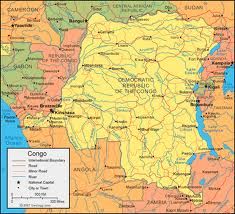
KM: The Congolese are caught in a disturbing circle and it is a very vicious circle. It is so important for those who really want peace to support the Congolese people not the Congolese government. I tell my Congolese friends; you have a president where half a million people are being displaced by rebels supported by neighboring countries and when asked by a reporter during the press conference in Kinshasa if Rwanda and Uganda’s actions in the Congo was justified due to the fact they were not paid for the war effort to depose Mobutu in 1997 through the fabricated rebel movement AFDL, he [Kabila] responded “I have yet seen the bill from Rwanda and Uganda.”
If the president of the Congo is officially recognizing the ventures of neighboring countries and is expecting an invoice from these countries then who is speaking for the Congolese people and who are these people from the AFDL that came from Rwanda and Uganda? I feel embarrassed that I have to call him the President in the Congo, and yet I feel more resolved to make sure that the government in Congo changes.
I know the people of the Congo did not vote for him. But the Congolese people are caught between the elites fighting to keep him in power and working against the local people along with Rwanda, Uganda and multinational corporations that are looting the resources of the Congo with lack of accountability and total impunity for crimes they are committing. We have foreign governments, the US and UK, dramatically backing these corporations and governments without holding them accountable. Then there are the multi-lateral institutions such as the World back/ IMF who have written the mining and forestry laws of the Congo and also finance the Congo National budget.
Therefore, you have five forces working day in and day out to keep the Congolese people in bondage. It reminds me of South Africa. The government of the Congo does not represent the people and when you see what the Congolese have to face with these five tentacles (local Congolese elites, Rwanda/Uganda, UK/US, World Bank/IMF and multinationals). There has to be a global movement against these five forces to give the Congolese a fighting chance to transform their nation.
The liberation of the Congo... I am very clear on this... the forefathers of Pan Africanism said it very well that the liberation of the Congo means the liberation of the whole African continent. If you are a Rwandan and you are RPF, you have to remember that one day Paul Kagame will be gone and if the Congo is not at peace neither will Rwanda. When the Congo has a strong army it was able to help other countries but it cannot advance when neighboring countries are not at peace.
JF: Do you believe there is an underlying private relationship between President Kabila and President Kagame that is not known publicly?
 Uganda's Yoweri Museveni |
KM: Yes, there will always be an underlying relationship. Kabila was made by Kagame and he cannot say anything to Kagame because of this relationship. The trio of dictators, Kagame, Kabila and Museveni came together to remove Mobutu and Kabila was James Kabarebe’s aid during the invasion of the Congo. Kabila can’t hold Kagame accountable because he made him who he is.
We have several African nations (SADC countries specifically) that have told Kabila that they would back him if he were to go to the African Union and demand that Rwanda is removed from the UN Security Council in January 2013. All of these countries support President Kabila, yet, Kabila arrived at the AU and Kagame was able to convince him not to request removal of Rwanda on UNSC and Kabila agreed, which is against the will of the Congolese people.
In 2009, we also witnessed how Kabila was just a puppet leader in the Congo. What took place was that James Kabarebe flew into Kinshasa that January and met with Kabila regarding a military operation in the area called Umoja Wety and Kabila signed an agreement with Kabarebe about this military operation without consulting with the Congolese government.
The President of the Congolese Parliament at that time, Vital Kamhere, came out officially and denounced President Kabila for signing an agreement with a foreign nation without consulting with the government, which was unconstitutional. This action cost Kamhere his job as President of Parliament. This goes on to show that there was no working relationship between Congo and Rwanda but it was and still is between Kabila and Kagame.
This same illusion is happening today with the international community; they believe if Kabila and Kagame sit down and have talks it would resolve the conflict between the nations. But this has never worked. The talks have to be all-inclusive with civil society and all stakeholders and not two individuals.
We need peace in the Congo but anytime there is a problem in Rwanda there is then a problem in the Congo. We saw this in the 60’s when the Hutu took power, Tutsi fled to the Congo and surrounding countries then again in the 90’s when the Tutsi took power and the Hutu fled to Congo. We need a new solution to this ongoing problem. If we want peace in the Congo we need a genuine Inter-Rwandan dialogue. There needs to be a national sovereign conference in Rwanda as the Congo and other countries have done. These talks need to take into account the history of Rwanda and the region. We also need to find out who shot down Habyarimana’s plane because that has caused chaos for everyone in the region. We need to hold the perpetrators of this crime accountable. There cannot be peace without justice.
JF: What keeps President Kabila from mounting a force strong enough to stop the M23?
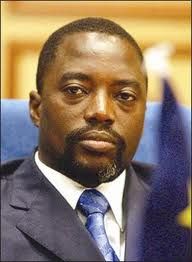 President Kabila |
KM: The issue is not stopping the M23, they are backed by Rwandan Military. The Congo has 150K troops. No one can tell me that 600 rebels can destabilize a region and create coalitions without the backing of the Rwandan Military. It is documented in the UN GoE report. Rwanda is backing these rebels. I am tired of seeing people picking up guns and then saying “let’s negotiate.”
How many peace accords have started this way? This has to stop. I am clear that the M23 rebellion has nothing to do with politics or democracy in the Congo but has everything to do with Bosco Ntaganda not wanting to be removed and Rwanda refusing to allow the Congolese government or the Congolese to remove the parallel chain of command controlled by CNDP. Rwanda is willing to go to war to keep that chain of command in place that allows them unlimited access to the minerals in the Congo because it brings millions of dollars to Rwanda.
In 2010 Rwanda made an estimated $200 million dollars in tin, tatanlum (coltan) and tungsten, minerals Rwanda is not well endowed with and possibly were smuggled from the Congo. So removing Bosco removes the money Rwanda is to make off of illicit mineral trade. They are not going to remove Ntaganda or let him be arrested because this stops their cash flow. President Kagame said, “What does Rwanda have to do with the Congo?” It’s Money! Simple as that.
JF: Speaking of Bosco Ntaganda, if he were captured and arrested what do you think the effect would be on the region?
KM: That is a tough question. He has to be arrested because many people have suffered at his hands. He knows a lot. He fought with the RPF to take over Rwanda, he was an officer until the 1996 war then he was sent to the Congo to fight the Rwandan proxy wars and he has been in the Congo since. So he knows a lot about what is actually unfolding in the region and who is supporting him. Arresting him would have serious impact on his backers in Rwanda and his international backers as well. He is a drug dealer, not the kingpin. The kingpins of the region are Museveni of Uganda and Kagame of Rwanda. If these two leaders are tried at the ICC or a special court set up, I guarantee you that there would be a serious impact in the region and there would be peace in the region. Arresting Bosco Ntaganda is a step in the right direction but it is not enough. His enablers must be stopped too.
Over 200,000 Congolese have been displaced in the last three months. Reports of serious human rights violations in the region have surfaced. The UN is monitoring the situation and there will be another MONUSCO report on the situation on the ground coming out soon. I believe Ntaganda should be held accountable for the crimes he is responsible of. But if his backers, Kagame and Museveni, are arrested and tried for war crimes and crimes against humanity that would send a very strong signal that the International Community is now serious about ending the culture of impunity that is rampant in that region.
JF: What do you think the realities are that the International Community would arrest Kagame and Museveni?
KM: I believe it will happen, the arc of the moral universe is long and it always bends toward justice. I believe they will be arrested. Steven Rapp’s statement that Kagame can be held accountable for aiding and abetting war crimes in the Congo was a very strong signal. Even if you are not a signatory of the Rome statute, a member nation party to the court can refer the case to another nation and if you are found liable you can be brought to court.
The Spanish Court that tried Pinochet of Chile has already 40 arrest warrants against Rwandan Military officers and the only reason they don’t have one for President Kagame is because he is a sitting president. There is a precedent for Paul Kagame. The Congo did sue Rwanda at the International court of Justice for war crimes during the time Rwanda occupied the Congo and the reason we did not win that case was because the court does not have jurisdiction in Rwanda given Rwanda has yet ratified the Rome Statute.
So the facts in the case against Rwanda at the ICJ are valid and can be referred to the ICC in due time. Congo brought a case against Uganda at the International Court of Justice and it won the case and was awarded $10 billion in reparations but we are still waiting for the payment from the Ugandan government.
Here is a thought to share around Uganda and the International Conference on the Great Lakes Region (ICGLR) summit re: M23 and Rwanda: For Uganda to host a summit for peace in the Congo, the prerequisite should be for Uganda to make a down payment on the reparation funds they owe the Congolese people. That is how serious we are going to take Uganda’s willingness to bringing peace into the Congo.
JF: President Kagame is well known for starting conflicts and then ending them for personal gain. Do you think he is doing this with the M23 and what would he stand to gain for ending the conflict?
KM: I believe the conflict with the M23 backfired. I think they were trying to force the Congolese government to the negotiating table. That is how I read the issue. They said we will arrest Bosco Ntaganda and remove the CNDP (National Congress for the Defense of the People) from the east to the west of the Congo then CNDP create a little chaos and try to bring the Congolese government back to the negotiating table but this time it did not work. The gain for Paul Kagame is to maintain the power structure to maintain the continued flow of Congo’s minerals in the east. He did not realize that the outcome would not be as it is now.
JF: There has been a lot of talk about the rebel groups in the different regions. If these rebel groups were to take Goma what do you see as the repercussions for that region?
KM: If they take Goma, I feel terrible for the people who are fleeing. Many cities have been taken by CNDP/M23 and what I’ve noticed with the M23 is the discussion about why they started this rebellion and it has to do with the inadequacy of the Congolese government and the lack of democracy and their salary. The issues they are actually mentioning are not related to the CNDP, it does not affect them. It affects the Congolese people. When you talk about the elections in Congo, the CNDP was rewarded for supporting Kabila’s election. When it comes to the salary, according to the UN report, the CNDP received their salary and some of the officers who fled with CNDP took soldiers’ salary. So the claim of not getting paid is not true.
Taking over Goma would be setting back many years of rebuilding within that region. Remember that Rwanda and Congo are very closely connected historically and geographically but because of this conflict there is a frustration within the Congolese community inside and outside the Congo around Rwanda continuing to support rebels in the Congo causing mayhem that has impacts for years to come. That’s what politicians are not saying to people, that the average Congolese person in the street is upset because all they know is that Rwanda is supporting rebels and he or she cannot make a difference between the Rwandan people and the Rwandan government. The young people I am talking with in Goma are very upset. Some of them are saying that they don’t need the Congolese military to deal with this situation and they will get rid of the infiltrators themselves. If they act on their anger, it will have International repercussion that will impact how people understand what is actually happening.
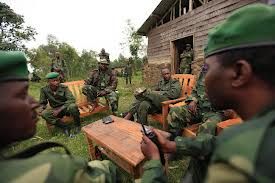 M23 rebels |
Whenever I am reading news on M23 it is upsetting because this is an armed group that has displaced half a million people, caused the killings of people and are destabilizing the region yet, no matter what the claim is, no matter how noble it may be it should not be supported. For me I am very clear that the Congolese government is inadequate and needs to be removed. I am clear that it would take a popular movement of the Congolese people to change the nation. I am against any Congolese person who would take up a gun to kill other Congolese. I am totally against any rebel group supported by the outside, in this case Rwanda, coming to tell us they are there to bring us democracy because we have believed it too many times. Rwanda continues to meddle in Congo affairs and give false hope to the population in Goma. Why should the Congolese live in fear of being shot in the city or running barefooted from conflicts. Why shouldn’t the children be in school learning?
JF: What can the rest of Africa and the Africans in the diaspora do to help resolve the security problems that the Congo is continuously facing for almost two decades now?
KM: Africans should hold aggressors of Congo accountable. The security problems in the Congo do not have roots in the Congo. Let’s be frank, the FDLR is not a Congolese problem, the CNDP is not a Congolese problem. Rwanda has the capacity of making peace or war in the region. René Lemarchand delves into Rwanda’s warring and peacemaking capacity in his paper “Reflections on the Crisis in Eastern Congo.”
So stability in the Congo relies on peace in Rwanda and Uganda. If Rwanda and Uganda had peace and democracy and opened up political space along with a genuine inter-Rwandan and inter-Ugandan dialogue that would bring peace to the region. We have seen time and time again, in this case Rwanda, supporting rebels in the Congo. Africans need to be putting pressure on the nations of Rwanda and Uganda to become partners for peace in the region of the Great Lakes. Africans did that before; the Second Congo war of 1998 to 2002 was actually stopped by African nations from SADC that came to help the Congo. They said “we can’t let Rwanda do this” so that was an African solution to an African problem.
We need for these nations now to do the same thing. Why do we have western nations cutting aid to Rwanda but we have not seen African nations holding Rwanda accountable. There needs to be pressure on Rwanda to stop supplying weapons to these rebels and become partner for peace. There is no military solution to the crisis in the Congo. African countries from ICGLR are calling for a military “neutral” force to come to the Congo which is not what the Congolese civil society hope to see. It is not in the interest of Africa for the Congo to be destabilized. If Congo were to be a stabilized country, the Congo River could supply electricity to the whole African Continent. Our land can feed the entire African continent. Our resources can rebuild the African Continent. Don’t let proxy nations like Uganda and Rwanda take away the future of Africa. Hold them accountable.
JF: Friends of the Congo, your organization, is largely based on the mobilization of the youth. How do you see empowering the youth as being able to change the trajectory that the Congo is currently on?
KM: The Congolese youth in particular are facing many challenges and we believe that they have to change things from the inside. So, what we do on the outside of the Congo is to put pressure on governments to not support oppressive regimes in Africa, especially in the case of Congo, Uganda and Rwanda in particular. Then we mobilize resources from allies to get support for people organizing inside the country. The youth need cellphones, laptops, printers, cover of travel expenses and anything that is required to organize. They are doing workshops to educate their peers on the challenge we face and we believe that the youth have the talent to organize but lack the tools to implement their vision.
We know war is not going to end overnight. There is no substitute to organizing. Cutting aid to Rwanda is only one step. The people in the Congo know what is happening in their country, they have read their constitution and they know their rights but they are missing the tools to organize on the inside. Yet, with a support network on the outside it is very likely that it will be successful. This same strategy that happened in South Africa with the ANC. Organizing on the inside with support from the outside these two groups, hand in hand, helped in stopping the apartheid regime. That is what we seek for the Congo and that is what it is going to require, The South African movement of yesterday is the Congo Movement of today.
The Congolese government is using the security sector reform to consolidate power and use it against the civilians. For example, in November 2011 when the youth went out to protest against irregularities in the presidential electoral process, they were shot by the Congolese police and some were killed. That is why we need people on the outside making sure that the governments supporting the Congo are not supporting the Congolese government who is also keeping the people in bondage. It is going to take time to transform the Congo but I believe, in my lifetime, I will see peace in the Congo.
To learn more about Friends of the Congo or to support their
cause go to: http://www.friendsofthecongo.
 Jennifer Fierberg is a social worker in the US working on peace and justice issues in Africa with an emphasis on the crisis in Rwanda and throughout the central region of Africa. Her articles have been published on many humanitarian sites that are also focused on changing the world through social, political and personal action.
Jennifer Fierberg is a social worker in the US working on peace and justice issues in Africa with an emphasis on the crisis in Rwanda and throughout the central region of Africa. Her articles have been published on many humanitarian sites that are also focused on changing the world through social, political and personal action.
Jennifer has extensive background working with victims of trauma and domestic violence, justice matters as well as individual and family therapy. Passionate and focused on bringing the many humanitarian issues that plague the African Continent to the awareness of the developed world in order to incite change. She is a correspondent, Assistant Editor, and Volunteer Coordinator for NGO News Africa through the volunteer project of the UN. Jennifer is also the media co-coordinator and senior funding executive for The Africa Global Village (www.africaglobalvillage.com) Jennifer comes to www.Salem-News.com with a great deal of experience and passion for working to stop human right violation in Africa.
 |
 |
 |
 |
 |
 |
 |
Articles for August 28, 2012 | Articles for August 29, 2012 | Articles for August 30, 2012
Quick Links
DINING
Willamette UniversityGoudy Commons Cafe
Dine on the Queen
Willamette Queen Sternwheeler
MUST SEE SALEM
Oregon Capitol ToursCapitol History Gateway
Willamette River Ride
Willamette Queen Sternwheeler
Historic Home Tours:
Deepwood Museum
The Bush House
Gaiety Hollow Garden
AUCTIONS - APPRAISALS
Auction Masters & AppraisalsCONSTRUCTION SERVICES
Roofing and ContractingSheridan, Ore.
ONLINE SHOPPING
Special Occasion DressesAdvertise with Salem-News
Contact:AdSales@Salem-News.com

googlec507860f6901db00.html



Terms of Service | Privacy Policy
All comments and messages are approved by people and self promotional links or unacceptable comments are denied.
[Return to Top]
©2025 Salem-News.com. All opinions expressed in this article are those of the author and do not necessarily reflect those of Salem-News.com.